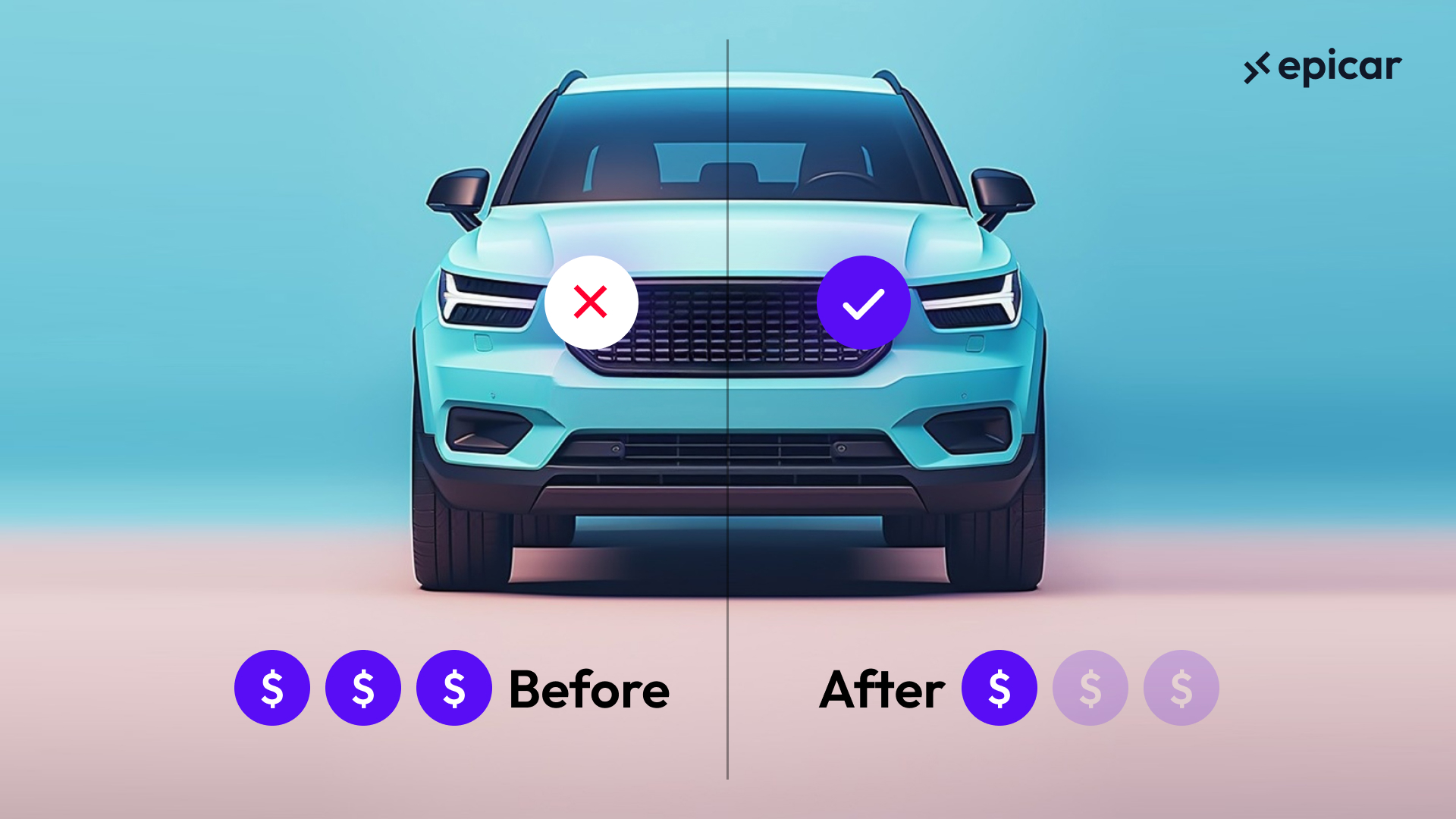When the moment arrives to sell your car, having all the necessary documents in order is crucial. Among these, the title of the car stands out as a fundamental piece of paperwork, serving as proof of ownership. However, what happens if you find yourself in a situation where you want to sell a car without a title? This article delves into the intricacies of selling a vehicle under such circumstances, providing insight into why a title is essential, how to navigate the process without one, and the legal considerations involved.
Why Do You Need a Title to Sell a Car
A title is a legal document that establishes ownership of a vehicle. It contains vital information, including the owner's name, the vehicle identification number (VIN), and any lienholders. When selling a car, the title is transferred from the seller to the buyer, legally transferring ownership. Without this document, proving your right to sell the vehicle becomes challenging, and for the buyer, it raises concerns about the legality of the purchase.
For car owners, the process of transferring car titles to a new owner is a critical step in the sale of motor vehicles. The title not only provides the seller with the legal right to sell but also assures the buyer of the vehicle's history and lien status. Moreover, it facilitates the update of records at the Department of Motor Vehicles (DMV), ensuring the vehicle is registered under the new owner's name. Without a clear title, the sale could be voided, leaving the seller in possession of the vehicle and the buyer without legal recourse. This makes the title indispensable for both parties involved in the transaction.
Learning How to Replace a Car Title

If your title is lost or damaged, applying for a duplicate title through your local DMV is your best bet. This process involves submitting a replacement title application, often requiring information such as your driver's license, the vehicle's registration, and vehicle details. The DMV may also request a fee for issuing a new title. Securing a duplicate title ensures that you can provide valid proof of ownership when selling your vehicle.
Further, when engaging in a transaction, especially with a private party, ensuring that the buyer's information is accurately reflected on the new title is important. The state's DMV will need to verify the title status to ensure that the vehicle can be sold outright by the original owner. This process includes checking for any liens or encumbrances that may affect the title. By providing a comprehensive application that includes the buyer's information and confirming that the vehicle is owned outright, the original owner facilitates a smoother transfer of ownership. This step is crucial in protecting the interests of both the buyer and the seller, ensuring that the sale proceeds without legal complications.
Applying for a Bonded Title
In situations where obtaining a duplicate title isn't possible, seeking a bonded title might be an alternative. A bonded title is issued after you purchase a cash bond, acting as a guarantee against claims of ownership of the vehicle. This process typically requires you to prove your attempt to access all the legal paperwork and provide a detailed account of how the vehicle came into your possession. Though a bonded title allows you to sell your car, it may carry restrictions depending on your state's regulations. To proceed, applicants must meticulously compile the required documents, including proof of bond purchase and any evidence supporting their claim to the vehicle. This often involves affidavits, receipts, and any correspondence related to the vehicle's acquisition. Successfully navigating this process not only facilitates the retitling of the untitled vehicle but also legally empowers the seller to transfer ownership. It's a pathway that ensures the car can be sold with a clear conscience, offering peace of mind to both the seller and the new owner about the vehicle's title status.
Transferring Ownership without a Title

Transferring ownership of a car without a title is complex but not impossible in a few states. These exceptions often involve creating a notarized bill of sale, which includes comprehensive information like the buyer's and seller's details, the car's current mileage, and the sale price. While this document can serve as a temporary permit of ownership, it's crucial to check with your local DMV for specific requirements and limitations.
To legally transfer a vehicle outright, especially when it has changed ownership without a traditional vehicle title, the seller fills out a detailed sale form, which must include a notarized signature to validate the transaction. This sale form acts as a critical document, providing a provisional framework that acknowledges the sale and purchase of the vehicle under the law. It's designed to offer a temporary solution until the new owner can obtain a formal vehicle title from the local DMV. The inclusion of a notarized signature adds an extra layer of security and authenticity to the transaction, ensuring that both parties are legally protected. This process, although unconventional, facilitates the continuity of vehicle ownership and use, enabling transactions that might otherwise be stalled due to the absence of a traditional title. It underscores the importance of adhering to state-specific guidelines to ensure the smooth transition of ownership under unique circumstances.
Alternatives When a Title is Not Available

When a title isn't available, sellers might consider other alternatives, such as applying for a title-exempt bill for older vehicles considered title-exempt vehicles. Additionally, providing a bill of sale along with any available documentation like service records or the original bill of sale from the purchase can help demonstrate the vehicle's history and ownership.
In such scenarios, ensuring the buyer's driver's license information is accurately recorded on any transaction documents becomes crucial, especially if dealing with an out-of-state buyer, which might complicate the process of transferring ownership. The local Department of Motor Vehicles often provides a standardized sale template, which can be invaluable for those looking to sell their car under these conditions. This template ensures that all necessary details are covered, facilitating a smoother transition and helping to establish a clear chain of ownership in the absence of a traditional car title. Utilizing such a template can significantly aid in the legal transfer process, providing both parties with a sense of security and legitimacy in the transaction. It's an effective way to circumvent the challenges posed by not having a title, ensuring that the sale adheres to legal standards and that the new owner can eventually obtain a proper car title.
Legal Risks When Selling a Car without a Title
Selling a car without a title carries significant legal risks. Potential buyers may question the legality of the sale, and the absence of a title raises concerns about possible liens against the vehicle or disputes over ownership. Furthermore, selling a vehicle without transferring the title properly can lead to legal complications if the vehicle is involved in criminal activity or accidents in the future.
To mitigate these risks when attempting to sell a car without a title, it's imperative to double-check for any electronic lien that might be registered against the vehicle. Such liens can often be overlooked, yet they play a crucial role in the legality of the sale. Sellers should inform the buyer about the situation and the steps being taken to resolve it, including the retitling process to obtain a replacement title or a pink slip, which serves as proof of ownership. Transparent communication with the buyer about the absence of a title and any ongoing efforts to rectify this issue is key to maintaining trust and legality. Additionally, sellers must ensure that all agreements and disclosures are documented to protect both parties. This careful approach can help navigate the complexities of selling a vehicle under such circumstances, reducing the potential for legal repercussions and ensuring a smoother transition of ownership.
Summary
Selling a car without a title is fraught with challenges and legal complexities. Obtaining a duplicate or replacement title, applying for a bonded title, or leveraging a notarized bill of sale are potential pathways to navigate these situations. However, ensuring the sale complies with state regulations and provides adequate protection for both seller and buyer is crucial. Careful preparation and adherence to legal guidelines are essential. Sellers should gather all available evidence of ownership and meticulously document the transaction's details. This documentation can serve as interim proof of the sale and protect both parties if disputes arise. It's also wise to communicate openly with potential buyers about the title's status, offering transparency and building trust. By taking these steps, sellers can mitigate risks and move closer to completing the sale, even in the complex landscape of selling a car without a traditional title.
Tips and Q&A
-
Do You Need a Title for a Car Over 20 Years Old?
The short answer is, it depends on the state. Some states have title-exempt policies for older cars, meaning vehicles beyond a certain age may not require a title for sale or registration. However, providing proof of ownership remains essential.
-
Can You Get a Title with a Bill of Sale?
In most cases, a bill of sale alone is not sufficient to obtain a new title. However, it can be a critical component of the documentation required for retitling a vehicle, especially when combined with other forms of proof of ownership.
-
Do You Need a Title to Scrap a Car?
Most states require a title to legally scrap a vehicle. This ensures that the car is not stolen and that the person scrapping the car has the right to do so. In cases where the title is missing, specific procedures must be followed to obtain the right documentation.






